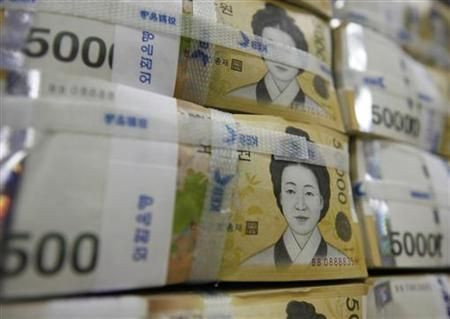South Korea’s Seasonally Adjusted Current Account Surplus Drops To $3.09 Billion In September

South Korea’s current account surplus on a seasonally adjusted basis dropped in September as compared to the previous month, indicating that the weakening global demand was affecting the country’s economy.
According to the data released Tuesday by the Bank of Korea (BoK), the current account surplus, which measures the difference in value between exported and imported goods, services and interest payments during the reported month, fell to $3.09 billion in September down from $4.31 billion in August.
The central bank also reported that on an unadjusted basis, South Korea’s current account surplus in September was $6.07 billion up $2.5 billion in August. The goods account surplus rose to $5.64 billion in September up from $2.51 billion in August with increase in exports of electronic products and automobiles. Meanwhile, the services account returned to surplus $0.32 billion in September up from $0.26 billion deficit reported in August.
This report came after BoK reported last month that the country's economic growth slowed down to 0.3 percent in the second quarter of this year compared to that in the previous three months. The preliminary reading in July showed that South Korea's gross domestic product was up 0.4 percent in the second quarter. In the first quarter, the economy expanded 0.9 percent.
With South Korea's economy continuing to slow down, investors feel that BoK will be under pressure to announce more monetary easing measures, including a further cut.
Also last month, BoK reported that South Korean manufacturing BSI Index for September was at 75. A reading below 100 is an indication that the number of firms that see business conditions deteriorating is more than that of those that see an improvement.
Market players sense that monetary policy should be loosened again sooner rather than later, though the central bank has shown a preference for moving slowly. With South Korea having an inflation rate of 2 percent in September, which is below the central bank's 3.0 percent target limit, there should be room for further policy loosening.
Investors sense that the euro zone crisis is likely to escalate again this year. They also sense that the global growth will remain subdued not just for the remainder of 2012 but also in 2013, led by a prolonged recession in the euro zone. So there is an increasing possibility that the BoK will have to further cut the interest rate this year.
© Copyright IBTimes 2024. All rights reserved.




















